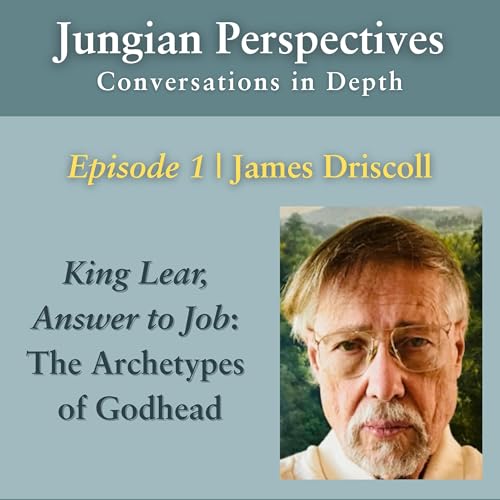
King Lear, Answer to Job: The Archetypes of Godhead
Échec de l'ajout au panier.
Échec de l'ajout à la liste d'envies.
Échec de la suppression de la liste d’envies.
Échec du suivi du balado
Ne plus suivre le balado a échoué
-
Narrateur(s):
-
Auteur(s):
À propos de cet audio
What if Shakespeare's darkest tragedy holds the key to understanding Western consciousness itself? In this riveting conversation, Shakespearean scholar and Jungian theorist James Driscoll reveals how King Lear and Jung's Answer to Job chart the same extraordinary journey—the transformation of the God-image from unconscious tyrant to suffering servant to defiant rebel. Through Lear's descent into madness and nothingness, we witness what Driscoll calls "the crucifixion of the ego," where pride strips away to reveal authentic self-knowledge and compassion.
This episode explores how evil, suffering, and injustice paradoxically become instruments of consciousness itself. Driscoll argues that King Lear presents the four archetypes of the Western Godhead—Yahweh, Christ, Prometheus, and the feminine Sophia—more powerfully than any work in literature. From his background as an AIDS activist who fought pharmaceutical injustice to his profound readings of visionary art, Driscoll demonstrates why understanding things "feelingly" rather than merely intellectually is essential to wholeness. A challenging, profound meditation on how we discover truth about ourselves only by confronting our nothingness.
Based on James Driscoll's article "King Lear, Answer to Job: The Archetypes of Godhead" from Psychological Perspectives, Volume 66, Issue 3 (2023).
James Driscoll has a PhD in English literature in Shakespeare. He has applied Jungian psychology to literature, philosophy, and social issues. His published books are: Identity in Shakespearean Drama (1983); The Unfolding God of Jung and Milton (1992); Shakespeare and Jung: The God in Time, (2019a); Shakespeare’s Identities (2019b); How AIDS Activists Challenged America (2021a); Jung’s Cartography of the Psyche (2020); The Devil and Dr. Fauci (2021b); Carl versus Karl: Jung and Marx, Two Icons for our Age (2022). He became prominent in the movement to speed FDA approval for AIDS and cancer drugs in the 1990s. His How AIDS Activists Challenged America reviews his career as an AIDS, LGBTQ, and FDA reform activist.
Timestamps
00:01 Introduction to Jungian Perspectives
02:09 Today's guest, James Driscoll
07:40 Shakespeare as a visionary artist
12:59 A summary of King Lear
19:14 The Four Archetypes of the Western Judeo-Christian Godhead
29:06 The role of evil in the transformation process
33:49 The theme of “nothing”
40:41 Suffering and Madness
49:06 Our emotional need for justice within society
53:31 The Archetypal Patterns and Symbols behind Cordelia, Lear, and their Story
59:07 Outro to Jungian Perspectives


